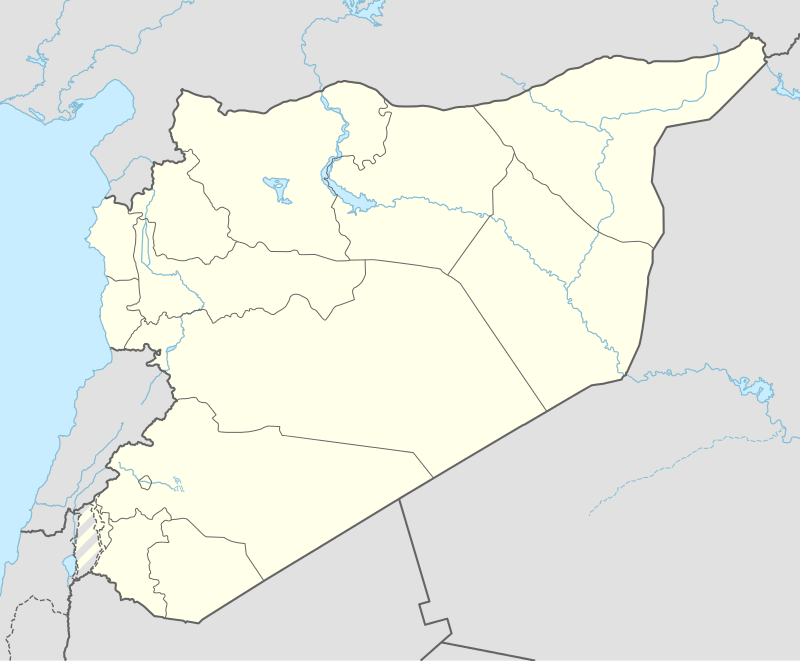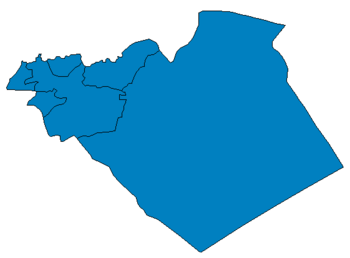Arjoun
Arjoun (Turkish: Arcun,[1] Arabic: عرجون, romanized: Arjūn, also spelled Arcun or Arjoon), is a village in central Syria, administratively part of the Homs Governorate, located southwest of Homs. Nearby localities include Aqrabiyah to the southwest, al-Qusayr to the southeast, al-Dabaah to the east, Kafr Mousa and al-Ghassaniya to the north and al-Houz to the northwest. According to the Central Bureau of Statistics (CBS), Arjoun had a population of 2,465 in the 2004 census.[2] Its inhabitants are predominantly Sunni Muslims.[3]
Arjoun عرجون Arcun[1] | |
|---|---|
Village | |
 Arjoun Location in Syria | |
| Coordinates: 34°33′28″N 36°32′11″E | |
| Country | |
| Governorate | Homs |
| District | Al-Qusayr |
| Subdistrict | Al-Qusayr |
| Population (2004) | |
| • Total | 2,465 |
| Time zone | UTC+3 (EET) |
| • Summer (DST) | UTC+2 (EEST) |
19th-century Biblical scholars identified Arjoun as "Argana" where in 854 BCE the Neo-Assyrian king Shalmaneser II fought the army of Hadadezer in the Battle of Qarqar.[4] Other sources insist that Argana was located somewhere north of modern-day Hama.[5] An Ancient Roman milestone was found in the village, suggesting it was situated on a Roman road.[6] In his visit to Syria, James Silk Buckingham described Arjoun in the early 19th century as a small village lying below an artificial mound. At the mound's summit was the tomb of a local sheikh surrounded by a few buildings.[7]
References
- Günümüzde Suriye Türkmenleri. — Suriye’de Değişimin Ortaya Çıkardığı Toplum: Suriye Türkmenleri, p. 14 ORSAM Rapor № 83. ORSAM – Ortadoğu Türkmenleri Programı Rapor № 14. Ankara — November 2011, 33 pages.
- General Census of Population and Housing 2004 Archived 2012-12-04 at Archive.today. Syria Central Bureau of Statistics (CBS). Homs Governorate. (in Arabic)
- Smith, 1841, p. 176.
- Conder, 1902, p. 173.
- Babylonian & oriental record, 1889, p. 42.
- Conder, 1892, p. 36.
- Buckingham, 1825, p. 491.
Bibliography
- Buckingham, James Silk (1825). Travels Among the Arab Tribes Inhabiting the Countries East of Syria and Palestine. Longmann.
- Babylonian & oriental record. D. Nutt. 1889.
- Conder, Claude Reignier (1892). Heth and Moab: Explorations in Syria in 1881 and 1882. Macmillan.
- Conder, Claude Reignier (1902). The First Bible. W. Blackwood.
- Smith, Eli; Robinson, Edward (1841). Biblical Researches in Palestine, Mount Sinai and Arabia Petraea: A Journal of Travels in the Year 1838. 3. Crocker and Brewster.
